
Find Help
More Items From Ergsy search
-
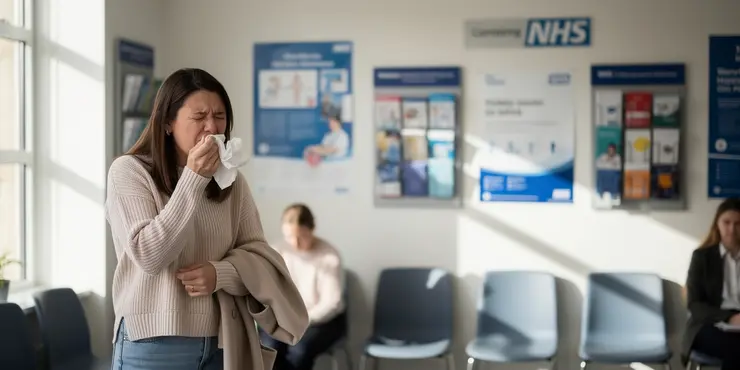
What is hay fever?
Relevance: 100%
-

Hay fever advice | NHS
Relevance: 93%
-
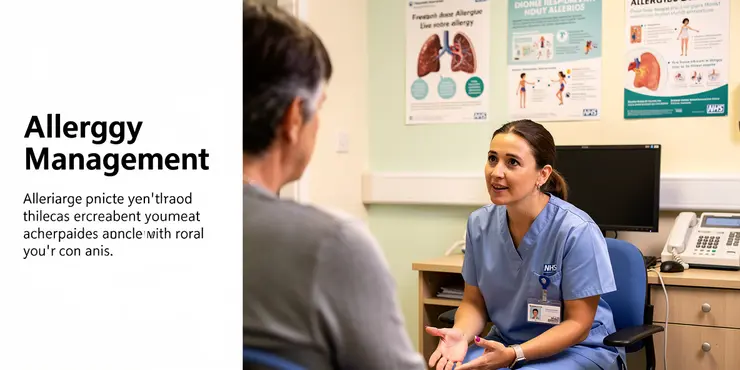
Is there a link between hay fever and asthma?
Relevance: 92%
-
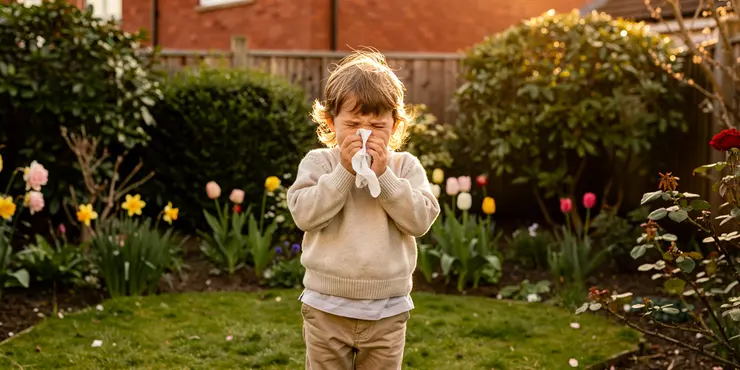
Can children develop hay fever?
Relevance: 92%
-
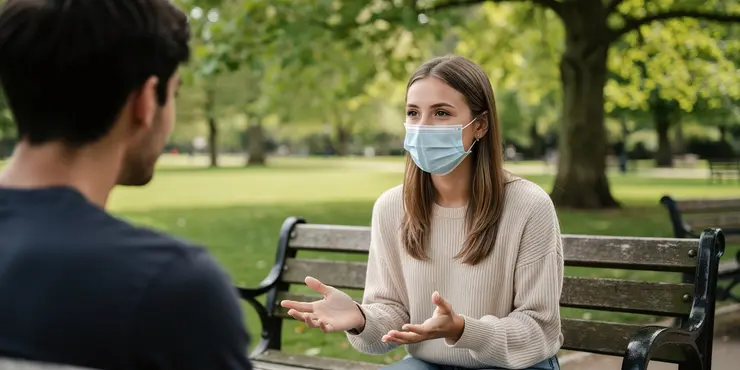
Do masks help with hay fever?
Relevance: 91%
-
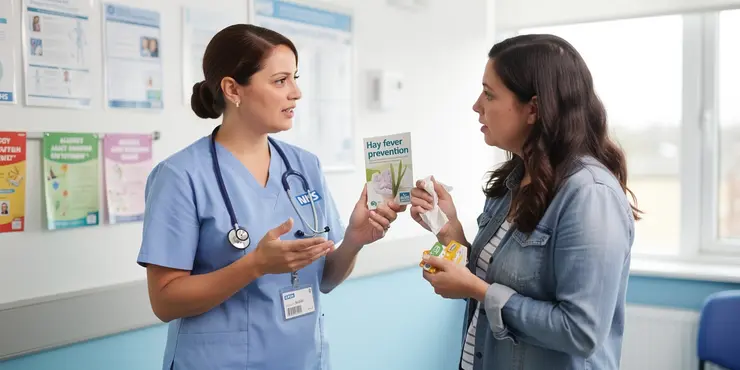
Can hay fever be prevented?
Relevance: 91%
-
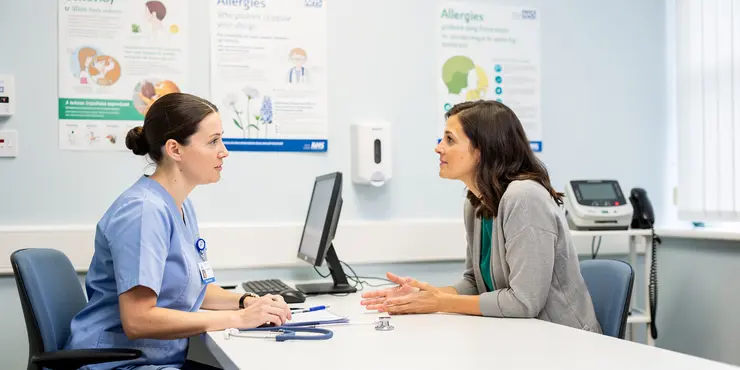
What are the common symptoms of hay fever?
Relevance: 90%
-

Can hay fever occur year-round?
Relevance: 90%
-
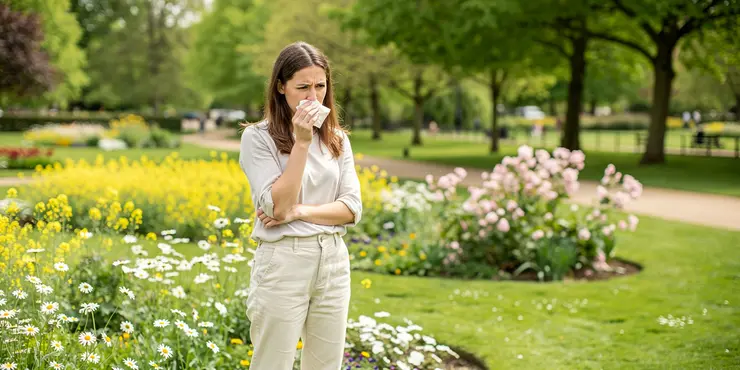
Are some people more prone to hay fever?
Relevance: 87%
-

Do pets contribute to hay fever?
Relevance: 86%
-

Antihistamines how they work with hay fever
Relevance: 86%
-

Can diet influence hay fever symptoms?
Relevance: 85%
-
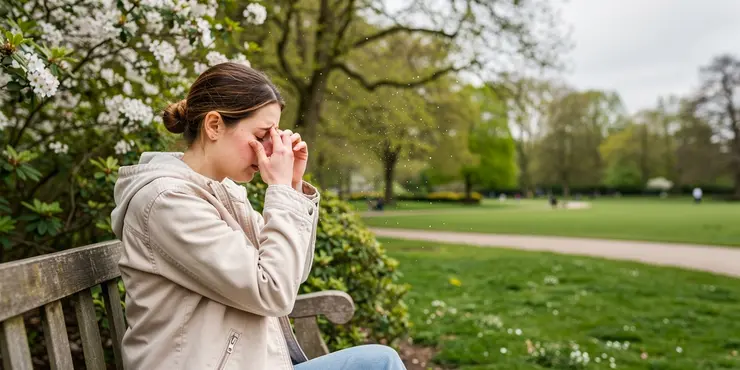
How does pollen affect people with hay fever?
Relevance: 85%
-

Can hay fever symptoms mimic other conditions?
Relevance: 85%
-

Why are experts warning of rising hay fever cases?
Relevance: 85%
-

Is hay fever more common in urban areas?
Relevance: 84%
-
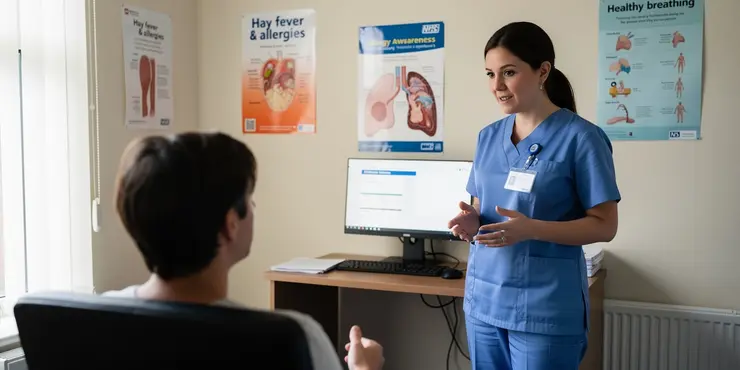
Do all plants produce pollen that causes hay fever?
Relevance: 84%
-
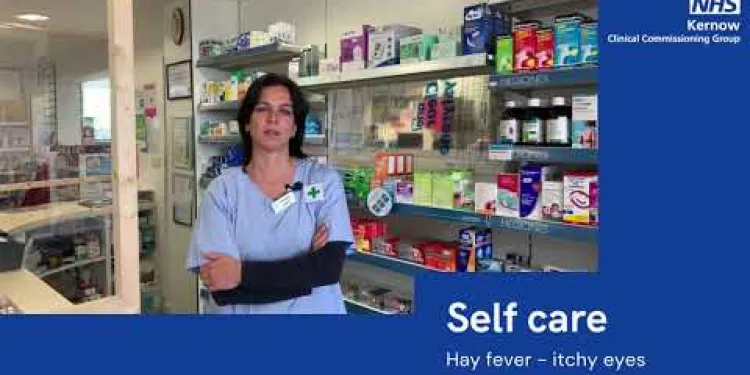
Self care - hay fever itchy eyes
Relevance: 83%
-
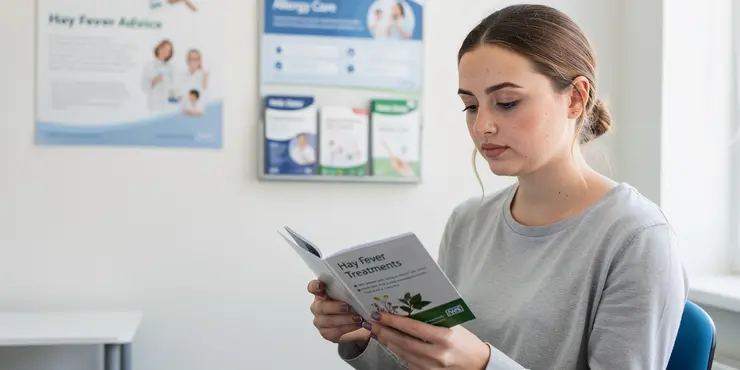
Are there any treatments for hay fever?
Relevance: 82%
-
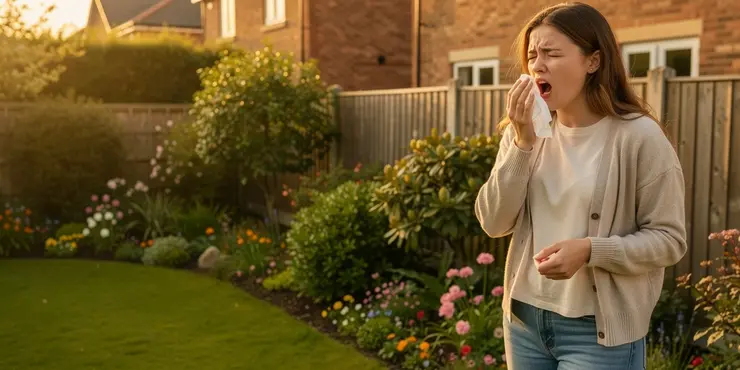
Experts Warn of Rising Hay Fever Cases as Pollen Counts Surge
Relevance: 81%
-

Can mosquito screens help reduce hay fever symptoms?
Relevance: 73%
-

How long does a typical hay fever season last?
Relevance: 56%
-

How to treat glandular fever | NHS
Relevance: 41%
-

Caring for a child with fever | NHS
Relevance: 39%
-

Can dengue fever be contracted in the UK?
Relevance: 38%
-

Is there a risk of yellow fever being spread by mosquitoes in the UK?
Relevance: 37%
-
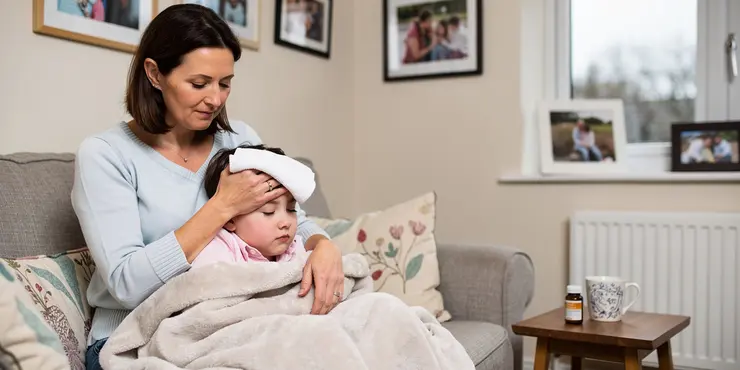
Which medication should be avoided for children with fevers?
Relevance: 35%
-
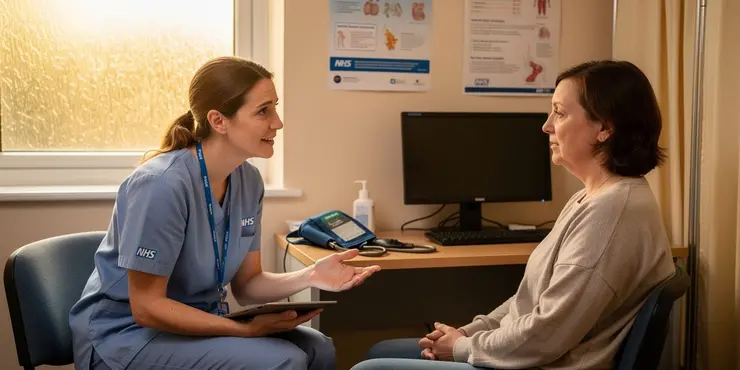
What is Dengue Fever?
Relevance: 33%
-

Can lifestyle changes help manage pain and fever during pregnancy?
Relevance: 31%
-
Is there a treatment for measles?
Relevance: 31%
-
Can Dengue fever be transmitted through blood transfusions?
Relevance: 30%
-

Is there a treatment for measles?
Relevance: 29%
-

What is the treatment for bacterial meningitis?
Relevance: 28%
-
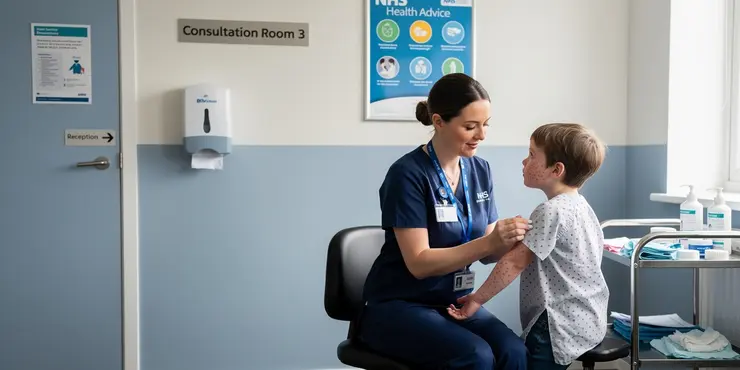
What is the treatment for chickenpox?
Relevance: 28%
-

Are there treatments for West Nile Virus?
Relevance: 27%
-

Understanding Seasonal Flu: Prevention and Treatment
Relevance: 26%
-

What treatments are available for Super Flu?
Relevance: 25%
-

What is the treatment for appendicitis?
Relevance: 24%
-

Having chemotherapy and other treatments in the Day Treatment Unit
Relevance: 23%
-

What are some common conditions treated with homeopathy?
Relevance: 23%
Understanding Hay Fever
Hay fever, also known as allergic rhinitis, is a common allergic reaction that occurs at certain times of the year. It is caused by the body's response to pollen from trees, grasses, and weeds. During the spring and summer months, many people in the UK suffer from symptoms such as sneezing, a runny or blocked nose, itchy eyes, and coughing. While there is no cure for hay fever, several treatments can help alleviate the symptoms and improve quality of life.
Over-the-Counter Medications
For many people, over-the-counter (OTC) medications are the first line of defense against hay fever symptoms. Antihistamines are among the most commonly used treatments and work by blocking the action of histamine, a substance in the body that causes allergic symptoms. Options include tablets such as loratadine, cetirizine, and fexofenadine. It is important to follow the dosing instructions on the packaging or consult a pharmacist for advice. Additionally, nasal sprays, such as those containing corticosteroids, can be effective in reducing inflammation and congestion.
Prescription Medications
If OTC medications are not effective, consulting a GP might be necessary. A doctor may prescribe stronger antihistamines or nasal corticosteroids. Immunotherapy, also known as desensitisation, is another option for severe cases. This treatment involves gradually introducing small amounts of the allergen, helping the immune system build tolerance. However, it requires regular injections and can take several years to fully take effect.
Natural and Home Remedies
Some people find relief using natural methods. Saline nasal rinses can help clear pollen and reduce nasal symptoms. Local honey is sometimes suggested to help build immunity to local pollen, but evidence on its effectiveness is limited. Herbal supplements, such as butterbur or quercetin, may also provide relief, though they should be used with caution as their efficacy and safety are less well-studied than pharmaceutical treatments.
Managing Exposure
Reducing exposure to pollen is a key strategy in managing hay fever. Keeping windows closed, especially in the morning and evening when pollen counts are highest, can help. Using pollen filters in cars and vacuuming regularly with a HEPA filter can also reduce indoor pollen presence. Wearing sunglasses can protect eyes from windborne pollen, and changing clothes after being outside can prevent bringing pollen into the home.
Conclusion
While hay fever can be a nuisance during peak pollen seasons, several treatments and strategies can help manage symptoms. From over-the-counter and prescription medications to lifestyle adjustments, individuals can find relief through various methods. It is crucial to identify what works best for you and consult healthcare professionals for personalized advice.
Understanding Hay Fever
Hay fever is also called allergic rhinitis. It happens when some people are allergic to pollen. Pollen comes from trees, grasses, and weeds. During spring and summer, many people in the UK have symptoms like sneezing, a runny or blocked nose, itchy eyes, and coughing. There is no cure, but there are ways to feel better and enjoy life more.
Over-the-Counter Medications
Many people use over-the-counter (OTC) medicines to help with hay fever. These are medicines you can buy without a prescription. Antihistamines are common. They stop a substance in your body that makes you itchy and sneezy. You can get tablets like loratadine, cetirizine, and fexofenadine. Always follow the instructions on the package or ask a pharmacist. Nasal sprays can help too, especially ones with corticosteroids. They make your nose less stuffy.
Prescription Medications
If OTC medicines do not help, visit your doctor. The doctor can give you stronger medicines. They might suggest stronger antihistamines or nasal sprays. For big problems, something called immunotherapy can help. This means you get small doses of what you are allergic to, over a long time, to make you less allergic. It needs regular doctor visits.
Natural and Home Remedies
Some people try natural ways to feel better. You can use a saline nasal rinse to clean your nose. Some say eating local honey helps, but there is not much proof. Herbal supplements like butterbur or quercetin might work, but be careful. They are not as well-tested as medicines.
Managing Exposure
Try to stay away from pollen if you can. Keep windows shut in the morning and evening when there is more pollen. Use pollen filters in your car and vacuum with a HEPA filter to keep indoor pollen low. Wear sunglasses outside to protect your eyes, and change clothes after being outside so you do not bring pollen inside.
Conclusion
Hay fever can be annoying, but you can manage it. Using medicines from the store, prescriptions from doctors, and making changes at home can help you feel better. Find what works best for you, and ask doctors for advice if you need it.
Frequently Asked Questions
Useful Links
This website offers general information and is not a substitute for professional advice.
Always seek guidance from qualified professionals.
If you have any medical concerns or need urgent help, contact a healthcare professional or emergency services immediately.
Some of this content was generated with AI assistance. We’ve done our best to keep it accurate, helpful, and human-friendly.
- Ergsy carfully checks the information in the videos we provide here.
- Videos shown by Youtube after a video has completed, have NOT been reviewed by ERGSY.
- To view, click the arrow in centre of video.
- Most of the videos you find here will have subtitles and/or closed captions available.
- You may need to turn these on, and choose your preferred language.
- Go to the video you'd like to watch.
- If closed captions (CC) are available, settings will be visible on the bottom right of the video player.
- To turn on Captions, click settings .
- To turn off Captions, click settings again.
More Items From Ergsy search
-

What is hay fever?
Relevance: 100%
-

Hay fever advice | NHS
Relevance: 93%
-

Is there a link between hay fever and asthma?
Relevance: 92%
-

Can children develop hay fever?
Relevance: 92%
-

Do masks help with hay fever?
Relevance: 91%
-

Can hay fever be prevented?
Relevance: 91%
-

What are the common symptoms of hay fever?
Relevance: 90%
-

Can hay fever occur year-round?
Relevance: 90%
-

Are some people more prone to hay fever?
Relevance: 87%
-

Do pets contribute to hay fever?
Relevance: 86%
-

Antihistamines how they work with hay fever
Relevance: 86%
-

Can diet influence hay fever symptoms?
Relevance: 85%
-

How does pollen affect people with hay fever?
Relevance: 85%
-

Can hay fever symptoms mimic other conditions?
Relevance: 85%
-

Why are experts warning of rising hay fever cases?
Relevance: 85%
-

Is hay fever more common in urban areas?
Relevance: 84%
-

Do all plants produce pollen that causes hay fever?
Relevance: 84%
-

Self care - hay fever itchy eyes
Relevance: 83%
-

Are there any treatments for hay fever?
Relevance: 82%
-

Experts Warn of Rising Hay Fever Cases as Pollen Counts Surge
Relevance: 81%
-

Can mosquito screens help reduce hay fever symptoms?
Relevance: 73%
-

How long does a typical hay fever season last?
Relevance: 56%
-

How to treat glandular fever | NHS
Relevance: 41%
-

Caring for a child with fever | NHS
Relevance: 39%
-

Can dengue fever be contracted in the UK?
Relevance: 38%
-

Is there a risk of yellow fever being spread by mosquitoes in the UK?
Relevance: 37%
-

Which medication should be avoided for children with fevers?
Relevance: 35%
-

What is Dengue Fever?
Relevance: 33%
-

Can lifestyle changes help manage pain and fever during pregnancy?
Relevance: 31%
-
Is there a treatment for measles?
Relevance: 31%
-
Can Dengue fever be transmitted through blood transfusions?
Relevance: 30%
-

Is there a treatment for measles?
Relevance: 29%
-

What is the treatment for bacterial meningitis?
Relevance: 28%
-

What is the treatment for chickenpox?
Relevance: 28%
-

Are there treatments for West Nile Virus?
Relevance: 27%
-

Understanding Seasonal Flu: Prevention and Treatment
Relevance: 26%
-

What treatments are available for Super Flu?
Relevance: 25%
-

What is the treatment for appendicitis?
Relevance: 24%
-

Having chemotherapy and other treatments in the Day Treatment Unit
Relevance: 23%
-

What are some common conditions treated with homeopathy?
Relevance: 23%


